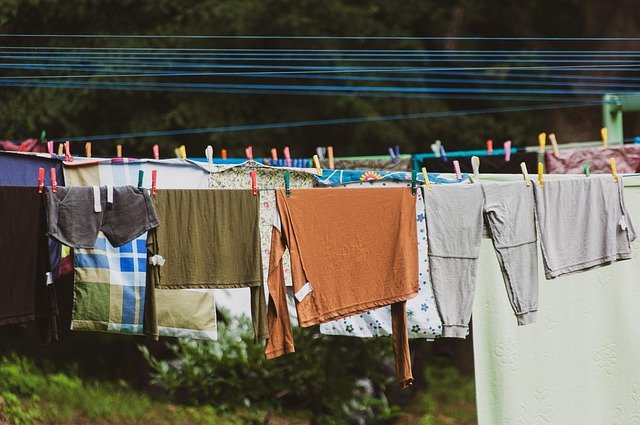# Save Big on Everyday Essentials: Smart Strategies to Stretch Your Budget Further
In today’s fast-paced world, managing your finances can be a daunting task, especially when it comes to everyday essentials like groceries, household items, and daily needs. However, with a few smart strategies, you can stretch your budget further and save big on these necessary expenses. In this article, we’ll explore how to make the most of coupons, bulk-buying, and other savvy shopping techniques to help you achieve your financial goals.
## Understanding Your Needs
Before diving into saving strategies, it’s crucial to assess your needs. Take a moment to evaluate what you purchase regularly. This includes groceries, toiletries, cleaning supplies, and any other essentials. By understanding your consumption patterns, you can better tailor your shopping habits to maximize savings.
### Create a Budget
Establishing a budget is the first step toward effective financial management. Determine how much you can afford to spend on everyday essentials each month. This will help you set limits and prioritize your purchases, ensuring that you don’t overspend.
## Mastering Coupons
Coupons are a powerful tool for saving money, and with the right approach, you can significantly reduce your grocery bills and other everyday expenses.
### 1. Stay Organized
The key to successful couponing is organization. Create a dedicated space for your coupons, whether it’s a binder, envelope, or digital app. Sort them by category (e.g., groceries, household items, personal care) to make it easier to find what you need when shopping.
### 2. Use Multiple Sources
Don’t limit yourself to just one source of coupons. Check local newspapers, grocery store flyers, and websites like Coupons.com, RetailMeNot, and Ibotta. Many stores also offer digital coupons through their apps, which can be loaded directly onto your loyalty card.
### 3. Stack Coupons
Many stores allow you to stack manufacturer coupons with store coupons, maximizing your savings. Always check the store’s policy on coupon stacking and look for opportunities to combine offers. For example, if you have a manufacturer coupon for $1 off a product and a store coupon for 20% off, using both can significantly reduce your total.
### 4. Plan Your Meals
Meal planning is an excellent way to utilize your coupons effectively. By planning your meals around the items on sale and the coupons you have, you can reduce food waste and save money. Create a shopping list based on your meal plan, and stick to it to avoid impulse buys.
### 5. Buy What You Need
While it’s tempting to stock up on items just because you have a coupon, only purchase what you need. Buying items you won’t use is a waste of money. Focus on products that fit into your meal plan and household needs.
## Bulk Buying: A Smart Strategy
Bulk buying can be a fantastic way to save money, especially on non-perishable items and household essentials. Here’s how to make bulk buying work for you:
### 1. Know Your Usage
Before buying in bulk, assess how quickly you will use the items. For perishable goods, consider whether you can consume them before they spoil or if you can freeze them for later use. For non-perishables, ensure you have enough storage space to accommodate your purchases.
### 2. Join a Warehouse Club
Membership-based warehouse clubs like Costco or Sam’s Club often offer significant savings on bulk purchases. These clubs typically sell items at lower prices per unit, making it easier to save on everyday essentials. While there is an upfront membership fee, the savings can quickly offset this cost if you shop wisely.
### 3. Buy Generic Brands
When purchasing in bulk, consider opting for generic or store-brand products. These items often offer the same quality as name brands but at a fraction of the price. This strategy can lead to additional savings, especially when buying in larger quantities.
### 4. Share with Friends or Family
If you find yourself purchasing bulk items that may be too much for your household, consider sharing with friends or family. By splitting the cost and the quantity, everyone can benefit from the savings without the risk of waste.
### 5. Stock Up on Sales
Keep an eye on sales cycles for items you regularly use. Many grocery stores have predictable sales patterns, so if you know when your favorite products go on sale, you can buy in bulk at the best prices. Combine this with coupons for even greater savings.
## Additional Tips to Stretch Your Budget
While coupons and bulk buying are effective strategies, there are several other ways to save on everyday essentials:
### 1. Use Cashback Apps
Take advantage of cashback apps like Rakuten, Ibotta, and Fetch Rewards. These apps allow you to earn money back on your purchases by scanning receipts or linking your store loyalty accounts. Over time, these cashback rewards can add up to significant savings.
### 2. Shop Seasonal and Local
Buying seasonal produce and local products not only supports your community but often comes at a lower price. Farmers’ markets, for instance, can offer fresh fruits and vegetables at competitive rates compared to grocery stores.
### 3. Avoid Convenience Items
Pre-packaged or convenience items often come with a higher price tag. Instead, opt for whole ingredients and prepare meals from scratch. Not only will this save you money, but it’s also typically healthier.
### 4. Review Your Subscriptions
Take a close look at any subscription services you may have for household items or groceries. Cancel any that you don’t use regularly or that don’t provide enough value for the cost.
### 5. Be Mindful of Impulse Purchases
Impulse purchases can derail your budget. To combat this, try to stick to your shopping list and avoid shopping when you’re hungry or stressed, as these conditions can lead to unplanned buys.
## Conclusion
Stretching your budget doesn’t have to be a daunting task. By mastering the art of couponing, bulk buying, and implementing additional smart shopping strategies, you can save significantly on everyday essentials. Remember to stay organized, plan ahead, and always be mindful of your purchases. With these tips in hand, you’ll be well on your way to a more financially savvy lifestyle, allowing you to save big and enjoy the things that truly matter. Happy saving!










